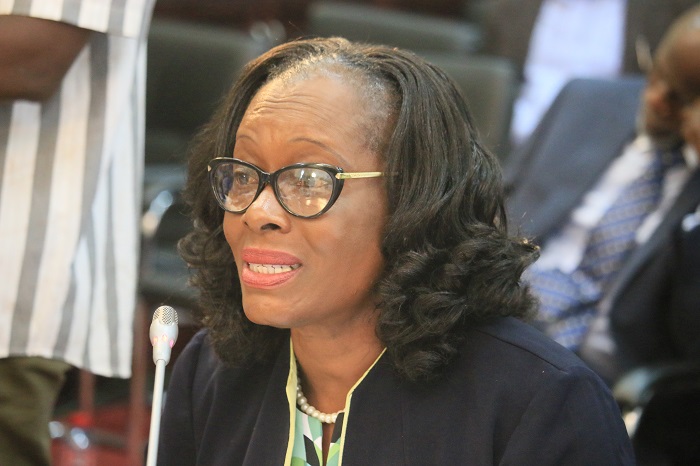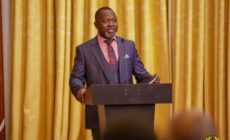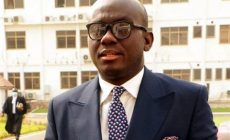Seize corrupt officials’ assets – Attorney General
- Posted on
- Comment
 The Attorney General and Minister of Justice, Gloria Akuffo, has encouraged seizure of the properties of public officials found to have engaged in acts of corruption.
The Attorney General and Minister of Justice, Gloria Akuffo, has encouraged seizure of the properties of public officials found to have engaged in acts of corruption.
Speaking at the launch of an Anti-Corruption Action Plan for the Judicial Service and the Judiciary in Accra, the AG pointed out that although there is no one-size-fits-all solution to corruption, in order to combat it, nations must take preventive measures against it, enforce laws against it, including investigation, prosecution and application of sanctions.
“In order that corrupt persons do not enjoy their ill-gotten wealth, the assets of persons proven to be corrupt should be traced, seized and recovered,” Ms Gloria Akuffo said.
Her comment comes barely a week after President Akufo-Asent had given a strong signal that public officials who are found to have engaged in acts of corruption would be made to suffer for their crimes.
According to him, although his government is committed to bringing the offenders to book, it is not in a hurry to punish people without thorough investigations; otherwise it could be seen as witch-hunting.
The 2017-2019 Anti-Corruption Action Plan for the Judiciary, produced with the assistance of the Danish International Development Agency (DANIDA) reinforces the commitment of the Judicial Service to stamp out corruption within the judiciary in line with the National Anti-Corruption Action Plan (NACAP), regional anti-corruption conventions and other international best practices.
The action plan highlights four key areas in the judiciary’s resolve to fight corruption.
These include increasing the focus on integrity; reducing opportunities for corruption; increasing transparency and accountability, as well as dealing efficiently and effectively with complaints.
The Attorney General noted that the Office of the Special Prosecutor, which will be tasked with the responsibility of prosecuting public officials found to be corrupt, has become necessary in view of the institutional bottlenecks that impede the fight against corruption.
Judicial Integrity
Chief Justice Sophia Akuffo stated that corruption among judges, magistrates and judicial staff does not only undermine the integrity of the judicial system, but also challenges the fabric of the judiciary as an institution charged with the administration of justice.
This, she noted, significantly erodes public trust and confidence in the judiciary.
According to her, there is no doubt that corruption thrives where the opportunity for its occurrence exists, admitting that the longer a case takes to be completed, the more opportunities are created for corruption.
“To ensure that cases are dealt with as quickly as possible, and that opportunities for corruption are minimised, we will continue to vigorously pursue effective application of technology through the automation of our courts and the improvement in our monitoring and evaluation systems,” Justice Akuffo indicated.
She pointed out that the judiciary, as the only institution vested with power under the Constitution to punish crime and ensure the compliance with the law, staff of the institution could not be seen to be conducting themselves in ways that compromise their position and undermine the authority of their office.
She therefore entreated judges and judicial staff to demonstrate that they have what it takes to make a difference.
“This Anti-Corruption Action Plan is our solemn pledge to the people of Ghana from whom justice emanates and in whose name and whose benefit we exercise the functions and authority of our office, that we are serious about our commitment to stamp out corruption within the judiciary,” the CJ underscored.
Gift Policy
A Supreme Court judge, Justice Sophia Adiniyra, who chaired the launch, suggested the implementation of a ‘Gift Policy’ for the Judicial Service, as well as the public and civil services, that clearly defines the thresholds for giving and receiving gifts with clear reporting and sanctioning guidelines.
“As administrators of justice and supporting staff, we must learn to draw clear boundaries as to what may be given or received as a gift and in what circumstances they are made or we stand in danger of becoming bribe demanders and bribe takers.
“I recommend a Gift Policy that conforms to international norms and practices such as the United States Foreign Corrupt Practice Act of 1977,” she proposed.
By Gibril Abdul Razak










 (Selorm) |
(Selorm) |  (Nana Kwesi)
(Nana Kwesi)